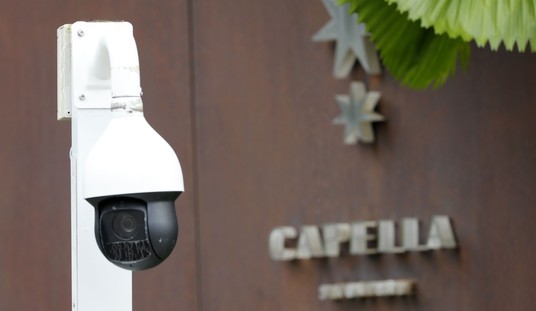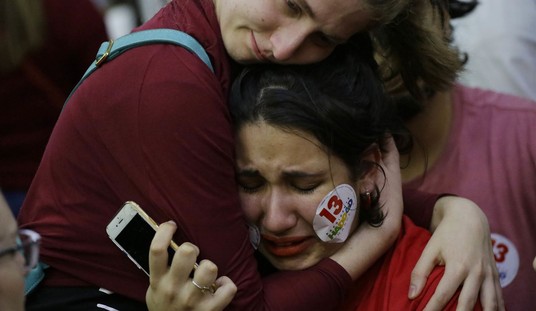Things are “starting to unravel at the AGW seams,” because, apparently, the “dog ate the homework” – more specifically the temperature data on which the whole global warming “can of worms” depends. Yes, three clichés in one sentence, yet somehow apropos for this unraveling fiasco that every day becomes more eye-rolling. Today’s unraveling – intentionally saved, I am assuming, for the weekend – comes from the Timesonline:
SCIENTISTS at the University of East Anglia (UEA) have admitted throwing away much of the raw temperature data on which their predictions of global warming are based.
It means that other academics are not able to check basic calculations said to show a long-term rise in temperature over the past 150 years.
Not to worry. Carol Browner – Obama’s climate czar – assures us that global warming science is “settled.” And Carol should know. She has a B. A. in English from the University of Florida, not to mention a law degree from the same institution. (Pop quiz, Carol. What’s the Second Law of Thermodynamics? How about Einstein’s Unified Field Theory? Oh, never mind.)
Of course, there are people with somewhat more scientific background than Carol who – to be fair to her she was a legislative assistant to Al Gore when he was a Senator and helped prepare amendments to the Clean Air Act (something I support) – are considerably more concerned about the explosion of the East Anglia CRU documents on the Internet. One of those is Judith Curry at Georgia Tech who is worried about the ramifications of “Climategate” for her profession. But perhaps more apposite at this moment is Professor Mike Hulme of the very U. of East Anglia who has gone so far as to say this means the IPCC itself may have outworn its usefulness:
It is also possible that the institutional innovation that has been the I.P.C.C. has run its course. Yes, there will be an AR5 (fifth report) but for what purpose? The I.P.C.C. itself, through its structural tendency to politicize climate change science, has perhaps helped to foster a more authoritarian and exclusive form of knowledge production – just at a time when a globalizing and wired cosmopolitan culture is demanding of science something much more open and inclusive.
It was that UN Intergovernmental Panel on Climate Change (IPCC), as most of us recall, that shared the 2007 Nobel Peace Prize with Gore. And they are the ones with the “structural tendency to politicize climate change”. From a scientist to his colleagues, that’s a powerful indictment. So it should be no surprise that Hulme also has some rather cynical things to say about the coming Copenhagen climate conference:
This will blow its course soon in the conventional media without making too much difference to Copenhagen — after all, COP15 is about raw politics, not about the politics of science. But in the Internet worlds of deliberation and in the ‘mood’ of public debate about the trustworthiness of climate science, the reverberations of this episode will live on long beyond COP15. Climate scientists will have to work harder to earn the warranted trust of the public – and maybe that is no bad thing.
Indeed they will. And indeed it isn’t. No matter what our climate czar may insist, climate science and Copenhagen are now under a giant cloud. In fact, as Hume implies, the situation is far more serious than that, because what has been revealed is what strange bedfellows science and politics are in this era. The relationship between politicians and scientists today is not entirely unlike the relationship between scientists and the clergy during the days of Galileo. And the politicians of today know about as much about the science as the bishops of Galileo’s time did, although our politicians are perfectly willing to exploit the science of which they are ignorant and the scientists too often perfectly willing to be complicit in their own exploitation
But in an era when we no longer think the world is flat, it’s time to have open, transparent science. It’s an absolute necessity if we are to have any confidence at all in the results – and in how we are spending the gigantic sums our leaders seem to demand of us.
Toward that end, I have a simple recommendation. Postpone the UN Climate Change Conference, scheduled to begin in Copenhagen on December 7. Give it another year or two for people to examine the science in the open. Otherwise, this will be seen as one of history’s great boondoggles.
I realize this is a difficult request, to put it mildly, with 192 countries set to descend on the Danish capital. But Copenhagen has many attractions other than pompous talk. The time would be better spent drinking aquavit in Tivoli Gardens than it would spending a fair portion of the world’s wealth on anthropogenic global warming that could be either an illusion or a very minor contributing factor to a far more complex problem. Let’s postpone.









Join the conversation as a VIP Member